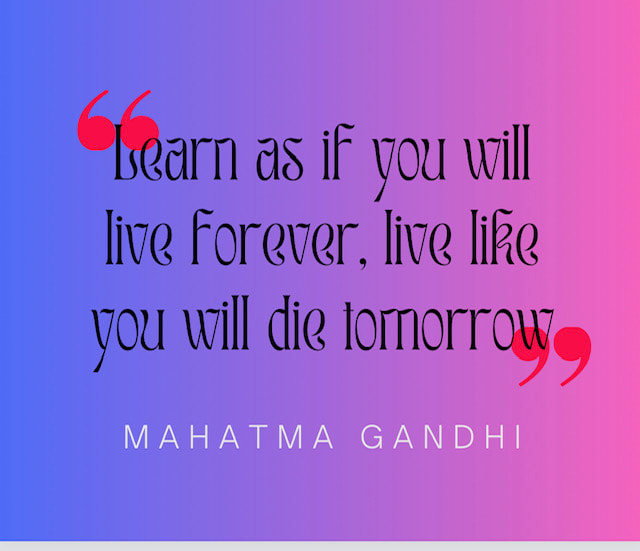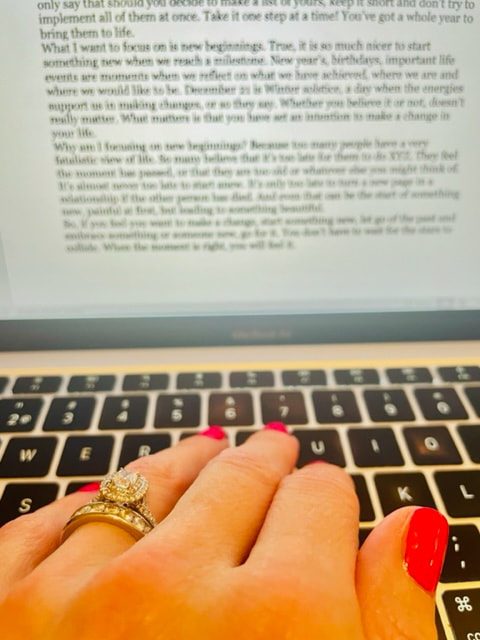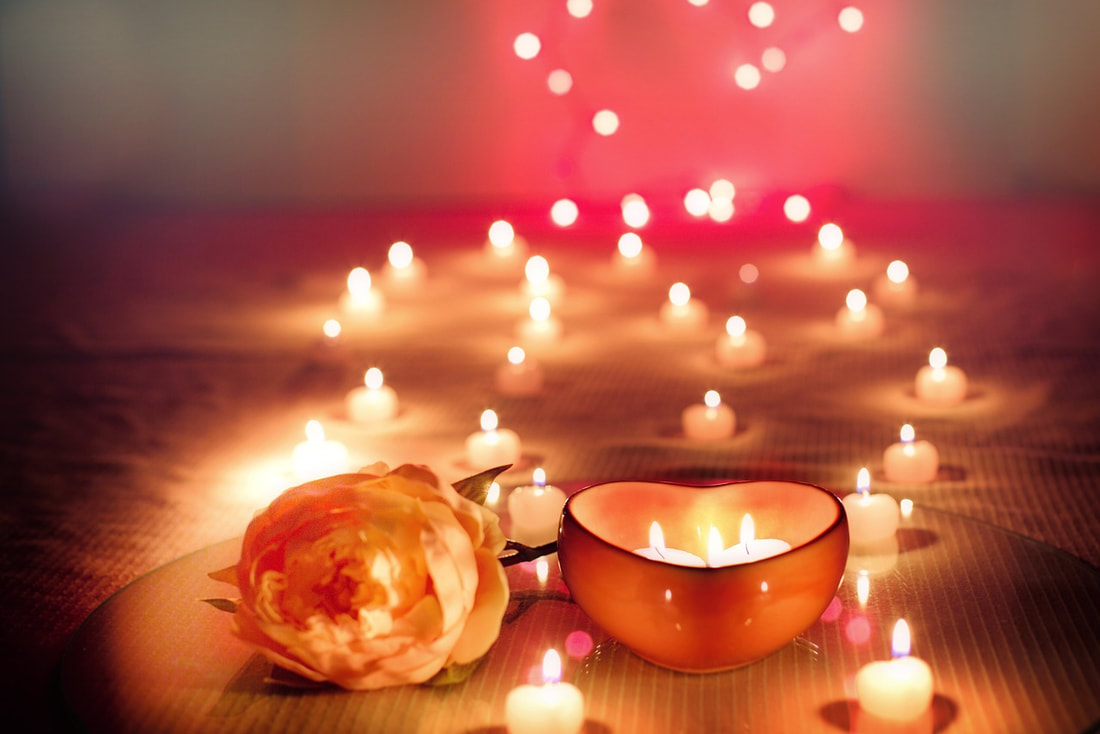|
Many people who come to therapy ask me if they should lower their standards when it comes to finding the right partner. This applies to women in particular. If a man is single after a certain age, he is still considered an eligible bachelor. If a woman in her 30s or 40s is single, she's considered weird. There must be something wrong with her, right?
Wrong! Many women are single because they have learned from previous experience and are no longer willing to tolerate just about anyone in their life. Nor are they willing to endure with clenched teeth or on the verge of tears the many annoying things their partners bring into the relationship. It's ok for women to become a bit more demanding when it comes to choosing an intimate partner. If society hadn't put so much pressure on women and burdened them with a myriad of expectations, most single women wouldn't even be considering lowering the bar. However, thanks to other people's judgments, many do start to question themselves and their choices. Hence the question, "Should I lower my standards?" There is no one-size-fits-all reply to it. Each woman should consider for herself what really matters for her in a relationship. Which are the qualities she seeks in a partner? Which are the values that must be shared? Does her partner's life plan need to align with hers? What is non-negotiable in a relationship? Those are the issues where standards shouldn't be lowered. Surely, there are areas where concessions and compromises are possible, though they aren't necessarily obligatory. Listen to your heart and mind and go along with what they're telling you. Trust your instincts. If you feel pressured by society to no longer be single, then by all means don't lower your standards, raise them! If you think that you might be a bit rigid in some areas, try to soften your approach. If you're considering just caving in because you don't want to be alone, ask yourself what other solutions are possible. A friend with benefits, an exclusive lover who lives in his own apartment, just a friend to keep you company, other options? Being single isn't always easy but it certainly beats being in an unhappy relationship. Sure, it's nice to be in a relationship, yet you can have a wonderful life being single as well. You've got but one life, make the most of it.
0 Comments
Could jealousy be beneficial in a relationship? Is it true that you're not really in love if you never feel jealous? Is it possible for jealousy to have a positive impact on your relationship or is it nothing but a destructive factor? Is jealousy an expression of your own insecurity or is it an expression of your mistrust of your partner? Are jealousy and envy one and the same?
Envy usually crops up on you when you notice that someone else has something that you desire. Jealousy rears its head when you experience fear of losing something or someone close to your heart. It's completely natural to experience jealousy every now and then. Very few people have such a high level of self-confidence to never even think about a possibility of their partner cheating on them or leaving them. Perhaps they don't even care about it. Most people, though, feel jealous at least on occasion. In particular when they see their partner paying too much attention to another person. They often start questioning themselves, wondering what's wrong with them. If they don't manage to resolve this internal conflict by themselves or by talking to their partner, then jealousy starts to grow bigger and stronger. All of a sudden, they can't sleep at night, feel anxious, experience stomachache and the like. They are overwhelmed with negative emotions such as irritation, fear, anger, indignation, helplessness, humiliation, panic, doubt, shame. These emotions find their outlet in their behaviour towards the partner. They become cynical, verbally aggressive, possessive, resentful, blaming. Self-doubt creeps in, followed by self-pity, suspiciousness, dark thoughts, desire for revenge. That kind of jealousy in no way contributes to a positive atmosphere in a relationship. Quite the contrary. It pushes the partner further away, perhaps to the point of landing them in another person's embrace. Jealousy can certainly be justified if your partner is behaving in an inappropriate way. If your partner has already been unfaithful, if they don't care about your relationship, if they find time for everyone else but you, then you're justifiably upset. Unfortunately, women tend to have jealous acting-outs when that is not in the least appropriate. For example, when your partner casts an admiring glance at a beautiful woman or when they talk excitedly about their ex or when they say that they occasionally fantasize about a movie actor or when they engage in an intimate conversation with your common friend. These are but a few situations when your jealousy can cause more damage than good. When then can jealousy be beneficial? Whenever it prompts you to invest more into yourself and your relationship. Whenever it reminds you of all the positive experiences you've had with your partner and motivates you to engage in many more. Whenever it helps you maintain a level of thrill and excitement in your relationship. Whenever it reminds you to not take your partner for granted and to appreciate them more. Before you start expressing your jealousy in an unhealthy way, check with yourself where the jealousy is coming from. Perhaps it has nothing to do with your partners behaviour. If, however, you believe that your jealousy is merited, have an honest conversation with your partner about it. If at all possible, without pre-emptive accusations. Admittedly, I indulged some of my colleagues and tried the keto diet. I will not go into detail about the keto diet, also because I haven't studied everything thoroughly and it's quite scientific. Suffice it to say that once you limit your carbs intake, your body will run out of glucose and start burning fat and produce ketones from the liver. When the level of ketones in your blood reaches a certain threshold, you enter ketosis - a state in which your body is using ketones as fuel. This is then supposed to lead to a rapid and consistent weight loss, until your body weight stabilizes at some point. So much about the process.
Why did I decide to try it despite my better judgment? For one very simple reason - the keto diet is supposedly effective in fighting brain disease and neurological disorders. Hm, quite a bold statement claiming that a diet can cure schizophrenia, Alzheimer's, Parkinson's, bipolar disorder, multiple sclerosis and many more disorders or diseases, including some of the more common ones like depression, anxiety, and insomnia. I've purchased a book and followed a plan by one of the gurus (I hate that word) after I had read another book on ketogenic diet by one of the leading professors from Harvard, whom I trust much more than the doctor of natural medicine. And the Harvard guy at least wasn't promising miracles and highlighted that the study of ketogenic diet on mental health is still in its early days. Not that I have anything against alternative treatments, quite the contrary. Honestly, significantly limiting carbs, sugar and dairy wasn't pleasant. But given that I was doing the 40-day alcohol free routine as well, I thought limiting certain food wouldn't be such a sacrifice. Also, if you were eating unhealthily all your life, then significantly limiting food and changing your diet completely must have some kind of an impact, at least short term. As a therapist, I was most interested in the impact on mental health. But I can't be the judge of it because I don't have any mental health issues, or other health issues, for that matter. So, I thought well, let's see if the diet manages to accomplish some minor cosmetic changes - such as wrinkles, squeaky joints, dull hair, thigh and belly fat. Believe it or not, there is even a collagen boost diet plan available so I should see some changes in skin and joints at the very least. Sadly, the diet had zero positive impact on me. Not a single thing improved. Quite the contrary. I felt heavy, lethargic and without energy. My metabolism slowed down. My skin broke out. I also felt incredibly hungry all the time, and I didn't starve myself. Calorie wise, I ate twice my normal caloric intake. Because I was hungry, I was often irritable. I didn't notice any impact on my brain - my mind wasn't any clearer, and my concentration didn't improve. Mind you, I'm a healthy person so I wasn't expecting miracles. But to not see a single positive sign of keto was disappointing to me. Especially since everyone on keto was singing praise to it. Truth be told, when I spoke to people about what happened when they got off keto, everyone said that they gained more weight back than they had lost. The conclusion I came to is that a balanced Mediterranean diet combined with ayurvedic principles is the best one. No diet of mine can be strict as I love chocolate and wine, and I'm not willing to give up on the little delicacies of life. Therefore, listen to your body. It knows best what you need. Stay away from drastic diets and avoid processed food as much as possible. Do sports regularly, meditate or do yoga for inner balance, find joy in food and sharing delicious meals with your friends and family. Each relationship is unique and writes its own story. There is not a single couple in this world for which we could say with certainty that the partners will stay together forever. People change. Life happens. Destiny forces us to face unexpected challenges. Nowadays, most women start panicking when they come to the conclusion that their partners must be narcissistic and diagnose them with narcissistic personality disorder (NPD). Key word being that they diagnose their partners by themselves. If you read about personal experiences of other women, or study articles by authors who don't have any theoretical or practical knowledge of, or experience with, narcissism, then you're probably left thinking that it is impossible to have a happy relationship with someone who exhibits narcissistic traits. Well, think again because happy relationships with narcissists are possible.
Firstly, everyone you label as narcissistic is not necessarily narcissistic, nor does that person automatically have an NPD. Narcissism happens along a spectrum. On one end, we find narcissistic personality disorder, which doesn't get expressed in the same way or with the same intensity in every individual. On the other end, we find narcissistic moments. In between, there are a narcissistic pattern and a narcissistic style. We also shouldn't forget about positive narcissism which doesn't get enough attention or prominence because everyone is focusing on the demonized form of narcissism. Secondly, many people claim that narcissism isn't treatable. That the whole situation is hopeless. They believe that a narcissistic person will never change. That is certainly not true as I have been working with people with NPD and with their partners, and they both make changes for the better. There are also many other experts in the therapeutic community who are developing effective approaches for treating narcissism. Therefore, NPD can be treated just like many other disorders. How successfully? It depends on how strongly the client wishes to change, and how empathic the therapist is in handling and dismantling narcissistic defense mechanisms. Thirdly, many personal stories we read about in the popular media relate to individuals who demonstrate characteristics of people with an antisocial personality disorder and / or psychopathy. Yet, these notions aren't synonymous. Narcissism, APD and psychopathy are not the same thing. True, there can be comorbidity present, but narcissism is miles away from psychopathy, even though it often gets confused with it. Most importantly, the majority of these personal stories don't talk about people with narcissistic characteristics or NPD. It takes two to tango which means that any kind of behavior can thrive only for so long as it is enabled by the other party. The biggest problem of those who declare themselves as "victims of a narcissist" is that they spend too much time focusing on their partners and their behavior. They're not focusing enough on themselves and on how they contribute to the maintenance of the unwanted behaviors. Everyone who wishes to change has the potential to do so. Every human being is capable of change and has the capacity for personal growth. The question is, just how much do they really want to change. If you are in a relationship with a person for whom you believe has narcissistic characteristics, then it is advisable to see a therapist. Let an expert tell you whether you are indeed dealing with narcissism or not. There is no need to predict a bleak future for yourself and your couple. Even if your partner has NPD, it doesn't mean the world will come to an end. Your partner is just as capable of changing as you are. You can change your partner's behavior by refusing to indulge their whims, by stopping to play their games, by no longer enabling their unacceptable behavior. Focus on yourself and on things you can change. When one partner changes, the other inevitably has to as well. If that doesn't happen, you can always leave the relationship. Relationships are complex for one very simple reason: people in general are complex beings and when two individuals come together, the complexity increases. Especially if we end up with someone who is completely incompatible with or different from us. But what exactly does it mean to be compatible or incompatible?
In our teens and twenties, even in our early thirties, we don't analyze our relationships much. When we break up with someone, it hurts, and we need to get over it before we give someone new a chance. Unless, of course, we're having a rebound relationship to help us forget the previous relationship. For many young people, being in a relationship means being constantly in what we call the "in love" phase. That is the crazy, stupid, hormonally induced love that often prevents us from seeing our partners as they truly are. We overlook their potential flaws and the little things that slightly annoy us because we're projecting our fantasy onto them. We see our partners through the rose-colored glasses. All we want is to enjoy their company and be fused with them - lust is what drives us and we see ourselves and our partners as one. Normally, once a relationship develops, the "in love" phase is replaced by the "loving phase" in which lust is replaced by romantic love and attachment as the main driving forces. This is the moment when the fantasy we had begins to conflict with reality. Very often, relationships break-up if we don't manage to adapt to the new reality of the relationship and see our partners for who they are. In general, this is the phase during which the excitement and the thrill fade away and need to be replaced by other things in common. Hence, it is very important that we are compatible with our partners in at least some of the key areas. It is highly unromantic to be choosing our partners according to a checklist. However, if we have been unsuccessful in many of our intimate relationships, maybe it's time we carefully consider certain elements before committing to someone for life. I don't know why it's happening exactly now but somehow death seems to be a prominent theme in my life. I absolutely hate it! Since themes in my life often correspond to the issues my clients are dealing with, I wonder how often the topic will be present in our discussions. Regardless of whether we're talking about physical or metaphorical death. Perhaps my thinking is impacted by the solar eclipse and what it portends as well.
There has been an unusual number of deaths and illnesses in my circle of friends lately and it's very disturbing. All so sudden and unexpected. I have considerable difficulties dealing with death. Not so much my own, but that's probably because I've been fairly healthy so far, except for one episode years ago. I was particularly hit by one death during the Covid times. It was so difficult to accept that the person was gone, that we'll never again have a glass of Rioja together or a deep conversation or simply fun toghether. I don't know what it is but this notion of never ever seeing someone again frightens me. It leaves me frozen. So many things left unsaid, so many memories not made together, so much still left to discuss, and enjoy, even if it is just some quiet time together. My love's illness too has marked me significantly. It's too soon. I'm not ready. And why is it that the theme of death is so omnipresent in my life now? It is ominous, frightening, unsettling. I know death is a natural part of life but it should not come so soon. I feel like I am being robbed. Something is being taken away from me. Often, there's nothing I can do about it. Stiff upper lip and taking it on the chin, in a very British kind of way. But I'm not British, I'm emotional. Perhaps it's the fact I'm feeling powerless. Unable to do something, anything. As a therapist, I have coping mechanisms. I understand the process. I know I will survive. Yet it's still unsettling, horrible, f...ing unbelievable, unacceptable. Tell them you love them. Tell them everything. Before it's too late. Just how ok are you with yourself really? Your high-school reunion could be a test of that.2/27/2023 When we grow older or become more mature, whichever way you prefer to call it, we tend to see ourselves differently than we did when we were younger. This is especially true if we engaged in personal develoment or became more successful or changed our appearance or lost weight or found a perfect partner, or did anything else to get rid of what used to be a source of shame and ridicule in our younger age.
Perhaps this is even more true for those of us who were bullied, excluded from the in-crowd, didn't perform well in school or were simply considered as somehow 'inadequate' by the people with whom we deseperately wanted to be accepted. Teenage years were a frustrating and humiliating experience for many because we were the outsiders who so wanted to fit in but were told very bluntly that there was something wrong with us. As those painful high-school years went by and we had the oportunity to reinvent ourselves at college, we got the impression that we can finally breathe and be ourselves. Alas, sooner or later we again stumbled upon someone who made us feel less worthy, and again we faced a similar trauma of questioning our self-worth. Ouir self-confidence plummeted again. what else! That made us even more determined to invest in ourselves, to become the best version of ourselves, to achieve whatever was deemed worthy of praise and admiration in other people's eyes. Many of us started changing our physical appearance or perfecting a skill or working harder at work, driven by the desire to be successful and to earn respect from our colleagues. Many of us actually managed to achieve our goal and on that wave of popularity we felt, for the first time ever, as if we truly fit in. While we strove to gain outside admiration, however, we often forgot that what we were doing was not so much to be true to ourselves but to please others. That's why no matter how successful we have become, the insecure child inside of us has still not left the building. At least not completely. Deep down we were still very much concerned that people would discover that we're nothing but the outsider, the loser, the laughing stock that we used to be. Because in times of distress or lack of success we still believed ourselves to be the kid that wasn't with the in-crowd decades ago. Hence, the relevance of high-school reunions. When the new, improved, self-confident adult that we are returns to the small town, and sometimes small-minded people, to face the tormentors from the past, that adult returns to the reuion in the child ego state, as we call it. No matter how successful or popular we are today, when we interact with the old crowd that made us feel like shit, we inadvertently fall into that same role. Unless we have truly made progress in our personal growth and are sincerely content with who we have become. The next time you go to your high-school reunion, or meet someone from your past life when you were a different person, observe how you behave and feel in the situation. If you regress to your old patterns of behaviour, cognition and emotion, then there is more self-development work to do. If you don't, then congratulations! You have reached the stage in your life where you're happy and content with who you are and you no longer care what other people think. The year is slowly coming to an end. It was one of the most difficult years to be honest, at least for me. I was just reflecting upon the last decade and 2011, 2014, 2016, 2018 were all extremely unpleasant years. I wouldn't want to relive them. Yet they also taught me so much!
We all tend to make new year's resolutions every year even though we often don't stick to many of them. Therefore, I shall not dwell on new year's resolutions. Let me only say that should you decide to make a list of yours, keep it short and don't try to implement them all of at once. Take it one step at a time! You've got a whole year to bring them to life. What I want to focus on is new beginnings. True, it is so much nicer to start something new when we reach a milestone. New year's, birthdays, important life events are moments when we reflect on what we have achieved, where we are and where we would like to be. December 21 is Winter solstice, a day when the energies support us in making changes, or so they say. Whether you believe it or not, doesn't really matter. The energy is in the air. What matters is that you set an intention to make a change in your life. Why am I focusing on new beginnings? Because too many people have a very fatalistic view of life. So many believe that it's too late for them to do XYZ. They feel the moment has passed, or that they are too old, or whatever else you might think of, to make a new start. It's almost never too late to start anew. It's only too late to turn a new page in a relationship if the other person has died. And even that can be the start of something new, painful at first, but leading to something beautiful. So, if you feel you want to make a change, start something new, let go of the past and embrace something or someone new, go for it. You don't have to wait for the stars to collide. When the moment is right, you will know it. Trust your intuition. Embrace the change, even if it scares you. Believe it will all be ok. I know the new year will bring me a huge loss that I'm not yet sure of how I shall overcome, if ever. But I also trust fate has many positive changes in store for me as well. If not, I will make sure the new year marks a new beginning for me too. Winter solstice is one of those days when the energies support us in our manifestations, so meditate, light a candle, make a wish, and see it come true! Let me say it clearly from the very outset: I strongly condemn all violence and I will never ever seek any excuses for whoever is violent. Violence, be it verbal, emotional or physical, is where I draw the line that is not to be crossed. Ever!
Why is that important? Well, because I've been approached by several women lately who wanted to do therapy. Not in order to change a life pattern that was troubling them, but because they wanted to change their behaviour so that their partners would be less violent towards them. And, of course, so that they would better cope with violence. Hm, excuse me? You want me to help you become more tolerant of and more resilient with respect to violence? Basically, you want me to collude with the violent person. No, no and no! Never! It is always painful to see someone hurting and we get a lot of that in therapy. When there is violence involved, the situation is even more difficult. It doesn't mean that therapy is not indicated or suitable for someone who is experiencing violence. Quite the contrary. Therapy can help you understand why you have tolerated violence for so long and give you strength to get out of the toxic situation. It is impossible to do therapy while you're in a toxic environment as people around you don't support you in your work to become a better version of yourself. It's the opposite really. They don't want you to change so that they can perpetuate their toxic behaviour towards you. Therefore, if you're in a situation where people are being violent to you, I can support you in getting out of that situation. If, however, you want me to help you change your behaviour so that it will hurt less when other people abuse you, well, then this is not therapy but collusion with the abuser. In which case I suggest you find a different therapist who would be willing to see you every week while you report on the abuse. I don't think there are many who would want to do that. Therapy can help you get stronger, more self-confident and determined to make a change. It can empower you. But first you need to chart a path out of the toxic situation and stop looking for excuses for the violent person. Losing a loved one, especially your partner, is painful and life altering. The only thing worse than losing your partner is losing your child. Though we can grieve for the loss of many other people or things in life, nothing affects us so profoundly as the loss of a loved one. How to cope with this deeply transformative life event? Is it even possible to survive such a life shattering moment? Is there life after death? Sadly, there are no universal answers to these questions.
Many objective circumstances can help to mitigate the pain caused by the death of a partner. I'm not sure that knowing your partner will die helps much, but it can definitely better prepare you for the loss. You get the chance and the time to say goodbye, and to make peace with what is inevitably going to happen. Though that by itself doesn't make the loss any less painful. Unexpected death can be much more shocking and paralyzing than an expected one precisely because it also robs you of the opportunity to tie up loose ends and say: 'I'm sorry' and 'I love you'. Little things matter in the process of grieving. Imagine how you would feel if you had just had an argument with your husband, for example, and he stormed out the house angry with you, and you with him, and then an hour later you got the call that he was killed in a car accident. How much remorse, guilt and shame you would have to deal with, in addition to the loss. Old age is another mitigating circumstance, though I doubt anyone can calmly accept the death of a loved one just like that. Yes, there are less regrets if you had a long and happy life together, but I'm sure you would still like to spend just one more minute with your partner, have just one more conversation, one more laugh, one more hug. Nothing can really prepare us for the death of a dear one. We all experience a whole panoply of emotions when it happens. We all face the void in our lives caused by the loss. We all have difficulties imagining how our lives are going to be from that moment on. We all sometimes wish we died together with our partners. Yet life does go on. It might not go on for us immediately, but eventually it does go on. What can help us in the process of mourning are a solid social network of reliable friends and family, professional psychological help, physical activity and meditation, artistic expression of all kinds, sometimes lying in shavasana and staring at the ceiling. We must allow ourselves enough time to grieve. It's perfectly ok if we behave in strange ways for a certain period of time. It's perfectly ok to cry for days on end if we feel like it. It's perfectly ok to do some crazy stuff if it helps. However, we must be mindful that we don't fall in the trap of eternal grief. We have the right to move on in life, to meet someone new, to start a new relationship or a family. That doesn't negate our previous relationship, not does it diminish the importance or the value of our experience with the late partner. We're not betraying them in any way when we move on. Because in the end, we owe it to ourselves to make the best of the lives we have. |
Katarina's Principle:“If we want to change the world, we need to talk about the elephant in the room. That is why I love real people who say what they mean and mean what they say. No fluff, no lies and no pretence.”
Archives
March 2024
Categories |












 RSS Feed
RSS Feed
